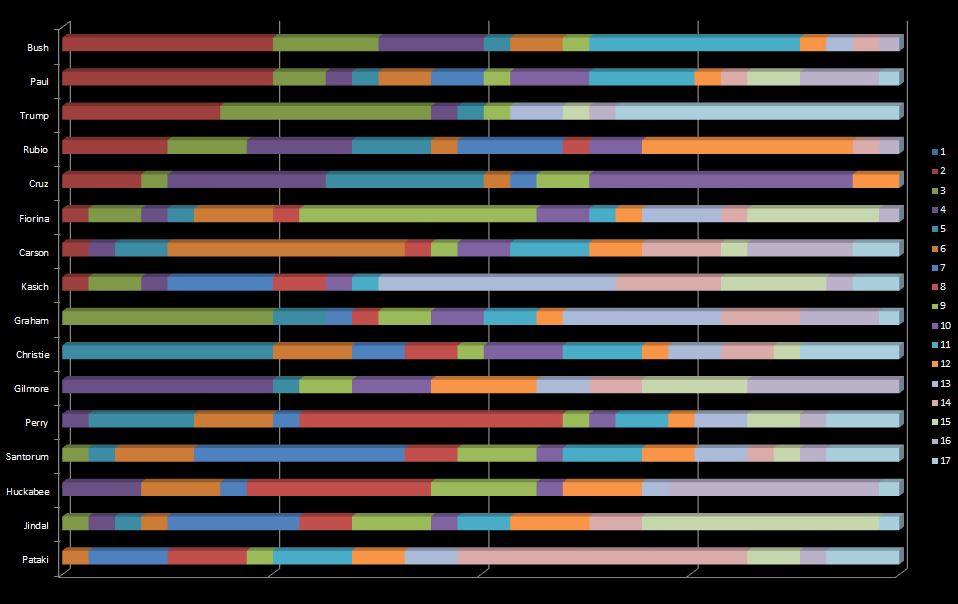Scott Walker’s departure from the crowded GOP race probably won’t have much impact on candidate standings. His support had fallen to 5% or so before he dropped out on September 21. There weren’t many supporters left to spread around.
But every edge counts. It’s reasonable to ask who might benefit from his withdrawal and whether ranked choice polling can offer any insights.

Of those respondents who ranked all candidates, and who ranked Scott Walker as their 1st choice, these are their 2nd through 17th choices.
Several pundits have speculated that Marco Rubio is most likely to gain. In fact, Walker had spoken publicly about Rubio as his VP choice. However, in light of the ranked choice dataset collected by Civinomics (mostly during mid and late August), it appears that his supporters are unlikely to coalesce around a common alternative. And despite the pundits, Rubio apparently isn’t their top choice. The weighted results page at Civinomics points to Donald Trump as the biggest gainer.
The results displayed here are somewhat different. They use the same source data from Civinomics, but rely on a subset filtered on respondents who ranked all seventeen candidates. The assumption is that by demonstrating more awareness of the whole field they are more likely to be better informed about the race. They are better positioned to influence persuadable peers as the race shakes out. More about the rationale and technique for that methodology is described here.
Suffice it to say that Jeb Bush and Rand Paul drew competitive shares of those Walker supporters, followed by Trump and Rubio.
Still, Trump displayed robust depth of support — and therefore strong acceptability — among former Walker supporters. He pulled the highest combination of their second and third place preferences. This suggests the extent to which Trump’s mid-summer surge came at Walker’s expense.
The source data has to be taken with a grain of salt, of course, given the shortcomings and poorly understood novelties associated with this kind of online poll. Nevertheless, if this methodology can offer any hypothesis worth exploring, it’s insight into Walker’s base… or lack thereof.
Something that jumps out from the chart is what doesn’t jump out… Consider how few of Walker’s supporters chose outspoken reigious conservatives — namely Cruz, Huckabee, Santorum, or Jindal — as their second, third, or even fourth choice. Those candidates appeal to a highly motivated part of the traditional Republican base. It was a population Walker strongly courted when, as an early frontrunner, he had positioned himself as the consensus conservative best suited to challenge Jeb Bush. Yet very few of the respondents who ranked him first moved to another candidate in that cohort. Cruz clearly fared best, but still trailed Bush, Paul, Trump, and Rubio by a distinct margin.
The upshot is that Walker failed to win much depth of support among social conservatives in the first place.
